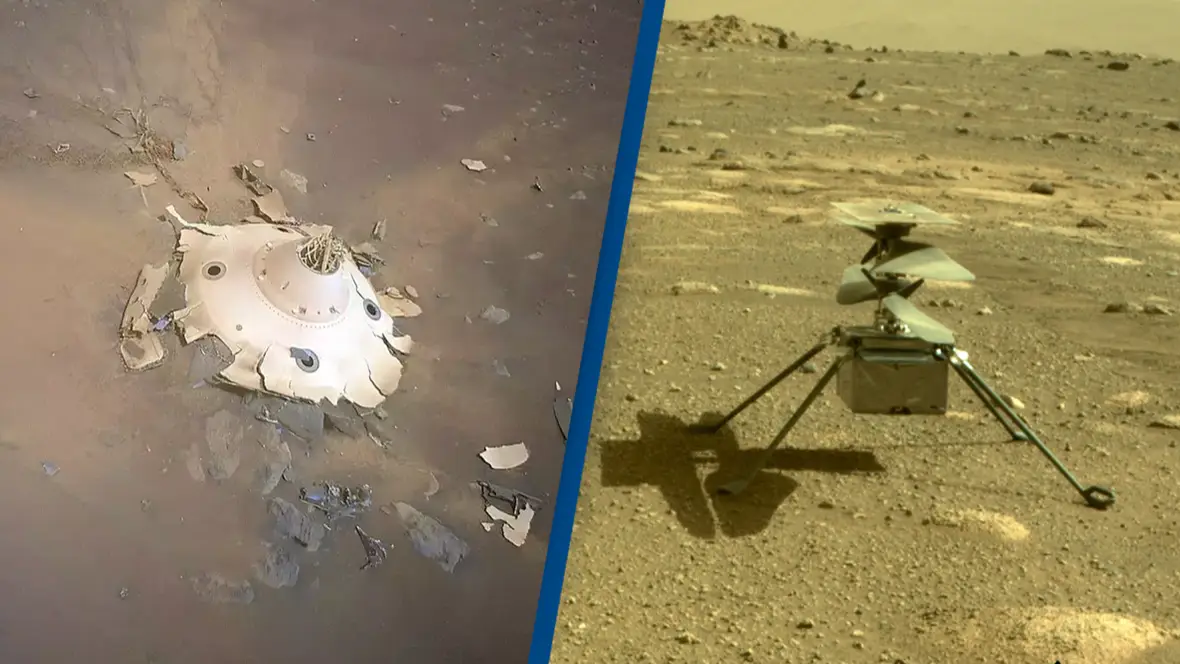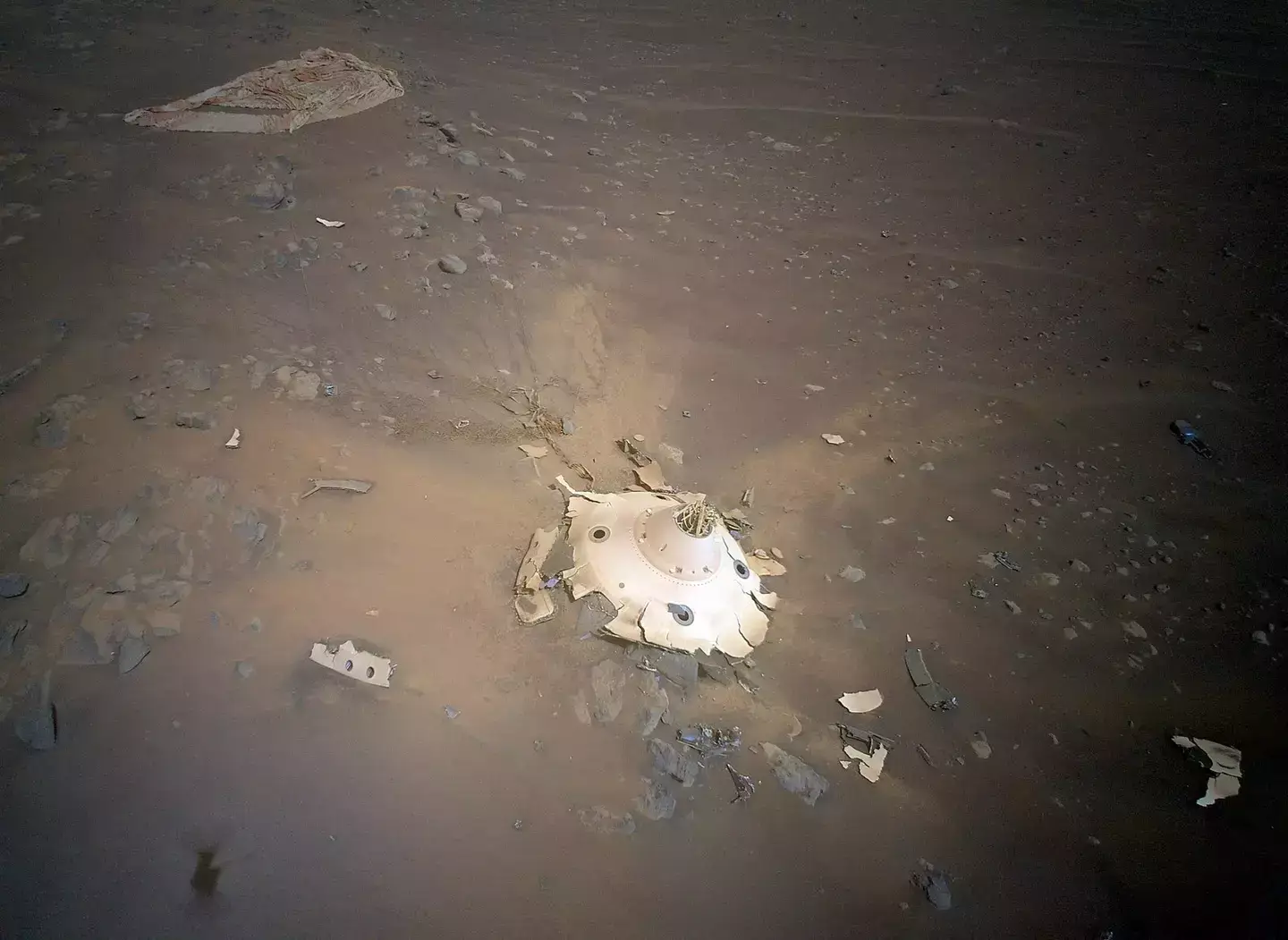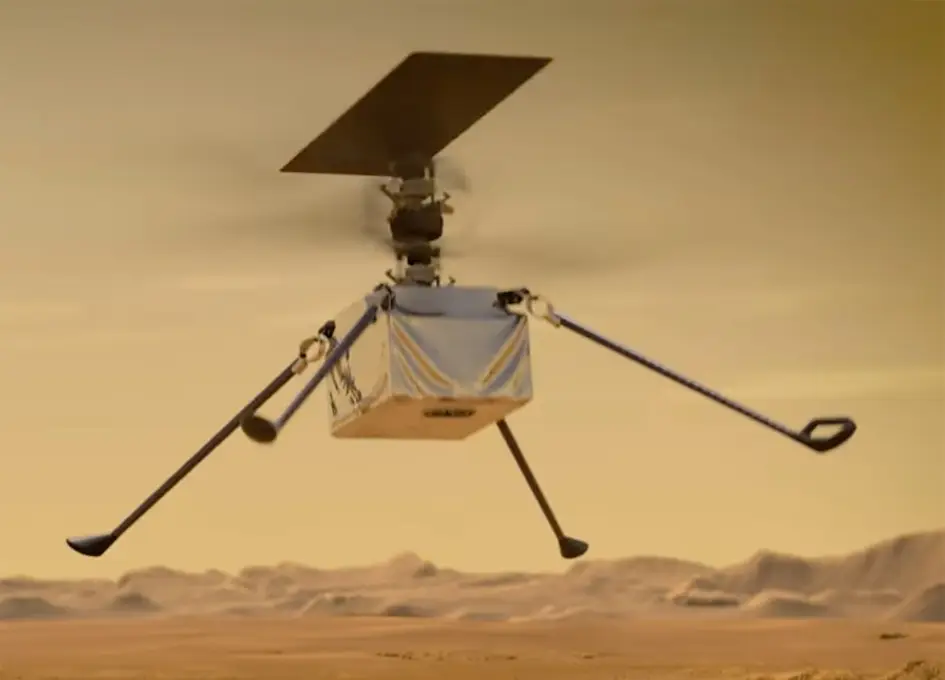
A NASA helicopter that took photos of a wreckage on the surface of Mars actually captured the debris of another spacecraft.
The Ingenuity Helicopter was transported to the surface of Mars on the bottom of the NASA Perseverance rover in July 2020.
The aircraft, nicknamed Ginny, was deployed for its first flight in April 2021 and completed 72 in total before it was retired in January.
Its job was to screen areas of the Red Planet that the Perseverance rover couldn't physically reach.
Advert
One of Ginny’s most talked about moments came in 2022 when it captured incredible photos of debris from the planet.
While it would be exciting to assume the wreckage was evidence of alien life, the mess was actually caused by humans.
The debris was the landing equipment used when Ingenuity arrived on Mars with the Perseverance rover back in 2021.
The photo shows the spacecraft's upright backshell and the debris field that resulted from it, impacting the surface at about 78 mph (126 kph).
NASA explained: “The backshell’s protective coating appears to have remained intact during Mars atmospheric entry. Many of the 80 high-strength suspension lines connecting the backshell to the parachute are visible and also appear intact.

“Spread out and covered in dust, only about a third of the orange-and-white parachute - at 70.5 feet (21.5 meters) wide, it was the biggest ever deployed on Mars - can be seen, but the canopy shows no signs of damage from the supersonic airflow during inflation.”
Ginny's photos have gone on to inform the future of space science, ensuring safer landings for spacecraft such as the Mars Sample Return Lander mission, due to begin in 2026.
Amazingly, Ginny measured just half a meter (1.6 feet) tall and weighed less than two kilograms (four pounds), proving that small things really can make a big difference.
Jet Propulsion Laboratory's Ian Clark, former Perseverance systems engineer and now Mars Sample Return ascent phase lead, explained: “Perseverance had the best-documented Mars landing in history, with cameras showing everything from parachute inflation to touchdown.

“But Ingenuity’s images offer a different vantage point. If they either reinforce that our systems worked as we think they worked or provide even one dataset of engineering information we can use for Mars Sample Return planning, it will be amazing. And if not, the pictures are still phenomenal and inspiring.”
Speaking to The New York Times about the photographs, he added: “There's definitely a sci-fi element to it. It exudes otherworldly, doesn't it? They say a picture's worth 1,000 words, but it's also worth an infinite amount of engineering understanding.”
Topics: Mars, NASA, Science, Technology, Space